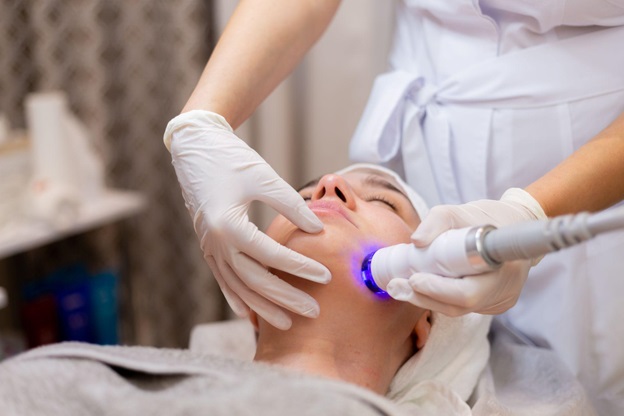
The Skin Care Revolution: Harnessing Dermatology for a Healthier You
Maintaining healthy skin is not just about looking good—it’s a crucial part of your overall health. Dermatology, the branch of medicine dealing with the skin, plays a pivotal role in helping us understand and care for our largest organ. Here are five essential tips, backed by dermatological science, to help you achieve and maintain radiant, healthy skin.
1. Understand Your Skin Type
The initial important element in safe skin treatment is knowing what your skin type is. Skin types dicont range from dry to oily, sensitive, and combination which is the most commonly reported. This is because each type is a bundle of demands that when properly stuffed in place can make it in a perfect condition. Consulting a certified dermatologist will be the key to creating a skincare routine that is personalized toward your skin. Hence, you need to visit one and discuss your skin’s unique features with your doctor. Get to know your specific skin type and skin care profoundly in dermatology.
2. Protect Against Sun Damage
Sun exposure can cause significant damage to the skin, ranging from premature aging to increased risks of skin cancer. Dermatologists strongly recommend using a broad-spectrum sunscreen with at least SPF 30 daily, even on cloudy days. Additionally, wearing protective clothing and seeking shade during peak sun hours (10 AM to 4 PM) can dramatically reduce your risk of harmful effects.
3. Maintain a Healthy Diet
What you eat reflects on your skin. A diet rich in fruits, vegetables, lean proteins, and healthy fats can promote vibrant skin. Foods high in antioxidants, such as berries, nuts, and green leafy vegetables, help combat the damage caused by free radicals, contributing to skin aging and diseases. A balanced diet not only enhances your skin’s appearance but also bolsters its health.
4. Keep Hydrated and Moisturize
Hydration is key for maintaining skin elasticity and combating dryness. Drinking adequate water throughout the day helps keep your skin hydrated from the inside out. Equally important is the use of moisturizers, which lock in moisture and create a protective barrier over the skin. Selecting the right moisturizer based on your skin type can enhance its effectiveness and prevent common skin problems.
5. Regular Dermatological Check-ups
Regular visits to a dermatologist are crucial for early detection and treatment of skin issues. These professionals can help monitor skin changes, treat conditions effectively, and provide guidance on preventive care practices. Early intervention in cases of acne, eczema, and other skin conditions can prevent complications and improve your skin health significantly.
Conclusion
Incorporating these dermatological tips into your daily routine can lead to substantial improvements in your skin health. Remember, healthy skin is not solely about aesthetics—it’s a vital part of your body’s defense system. Consulting with experts in dermatology can guide you toward the best practices tailored specifically to your skin’s needs. For more personalized advice and services, consider reaching out to specialists in the field by visiting dermatology. Your skin deserves the best care, and with the right knowledge and resources, you can ensure it remains one of your most vibrant features.
